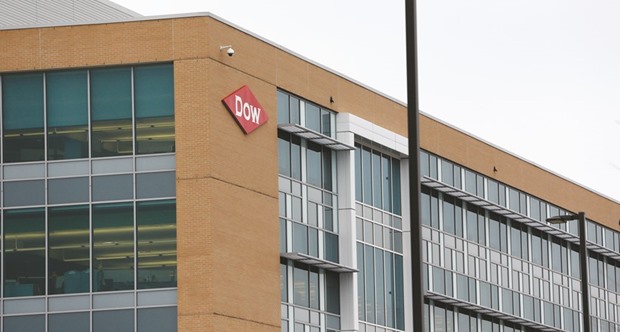European Union watchdogs have pored over patents held by Dow Chemical Co and DuPont Co to estimate future market shares for crop-protection products as they weigh whether to block their $72bn tie-up, said two people with knowledge of the EU’s ongoing review.
Regulators looked beyond the companies’ current overlapping portfolio and scrutinised patents for evidence that the deal might hinder the development of new products, according to the people, who spoke on condition of anonymity because the investigation is private. EU officials were trying to gauge products in the pipeline and their potential sales. The number of citations can help evaluate a patent’s importance.
The focus on patents is part of a broader EU review of the deal’s potential impact on overall innovation in the industry. The EU is concerned that plans by Dow and DuPont to reduce research spending will harm innovation for pesticides and herbicides, crucial products for farmers. Dow and DuPont has said they will eliminate duplication as they screen thousands of chemicals for breakthroughs.
“It’s informed crystal ball-gazing,” said Sophie Lawrance, a lawyer for Bristows in London. “It’s taking some evidence and trying to apply it to how the future might evolve. They should hesitate before drawing conclusions on patent volumes alone. There can be a great gulf between patents filed and what that actually translates to on the market.”
Dow and the European Commission didn’t immediately reply to requests for comment.
DuPont said it continues “to work constructively with the European Commission and all other relevant regulatory authorities to address their questions and to obtain clearance for the merger.”
Dow on Thursday posted fourth-quarter profit that beat analysts’ estimates. Adjusted earnings rose to 99 cents a share, exceeding the 88-cent average of estimates compiled by Bloomberg. Sales climbed 14% to $13bn, the company said in a statement. That compared with the $12.4bn that analysts anticipated.
The tie-up is among a trio of pending deals — including Bayer’s agreement to buy Monsanto Co and China National Chemical Corp’s agreement to buy Syngenta — that could reshape the agricultural-products industry.
The companies have a February 7 deadline to submit new concessions to the EU to try and allay antitrust concerns. EU regulators have until March 14 to approve the deal or block it, although more usually it accepts divestments or pledges to change business behaviour to allay potential competition problems.
DuPont chief executive officer Ed Breen said this week that it can address regulators concerns over innovation in crop-protection chemicals with concessions that will involve products as well as research and development resources. He didn’t give details. The companies now plan to close the deal by June, three months later than earlier anticipated.
EU Competition Commissioner Margrethe Vestager has highlighted concerns about the high concentration of the industry and the need to ensure choice for farmers. She’s also flagged up the value of patents as something regulators might want to consider in deals that wouldn’t otherwise generate enough revenue to fall under EU merger rules.
There’s “much more of a focus on future innovation” in recent deals involving patents that have been examined by the EU, said Annette Schild, a Brussels-based lawyer, citing several recent pharmaceutical and medical devices transactions where regulators looked at pipeline products and a potential loss of innovation.
“Companies have looked at the question of future overlaps for a while and have taken the risk of commission intervention into account in their initial risk analysis,” Schild said.

Dow Chemical Co headquarters in Midland, Michigan. The EU is concerned that plans by Dow and DuPont to reduce research spending will harm innovation for pesticides and herbicides, crucial products for farmers.
